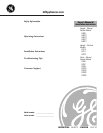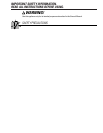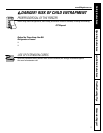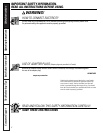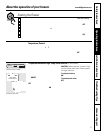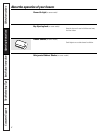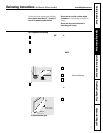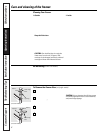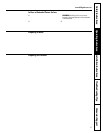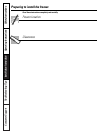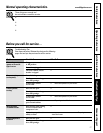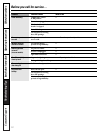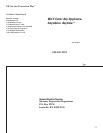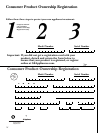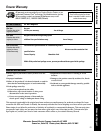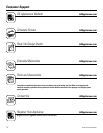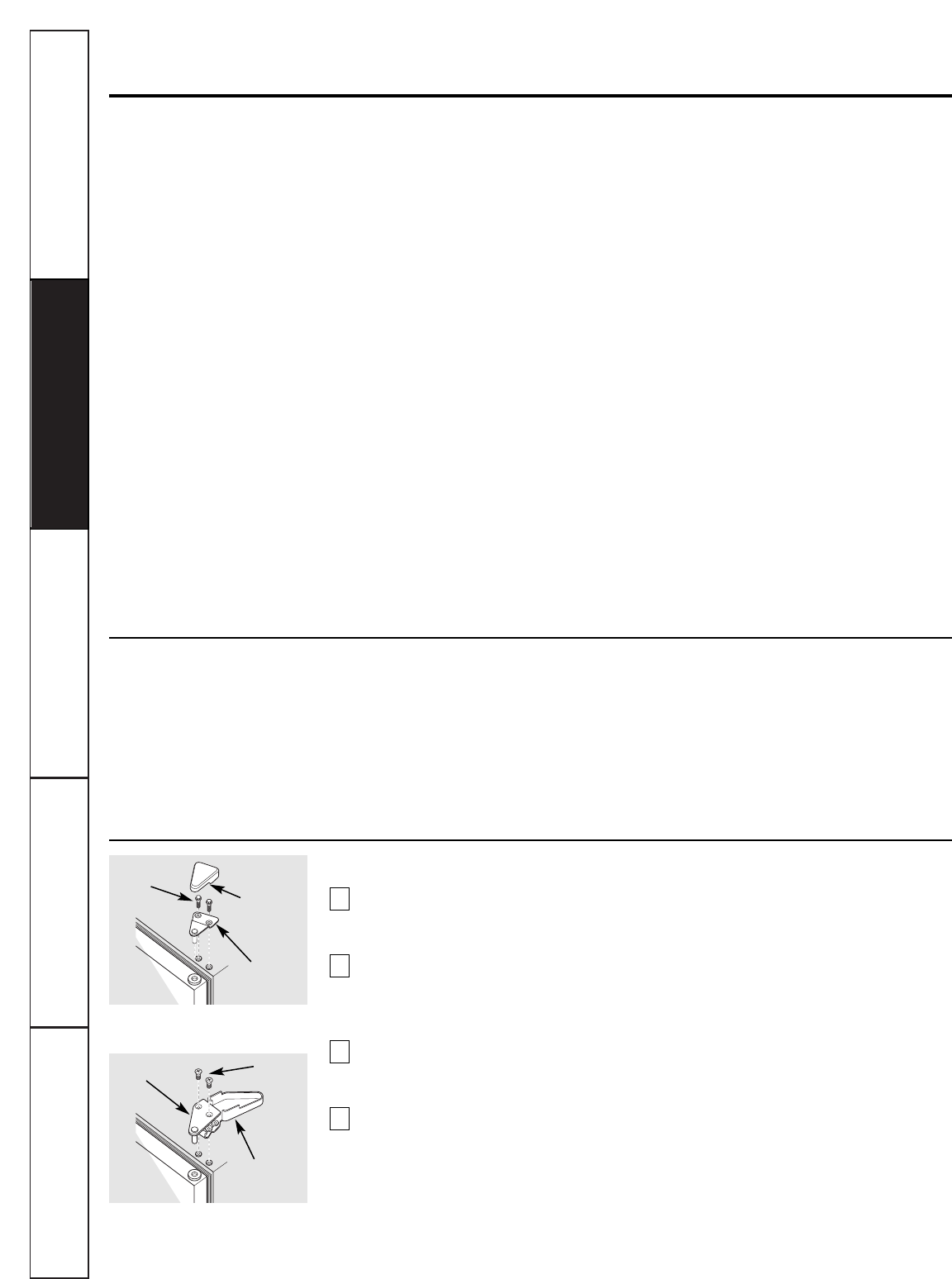
Consumer Support Troubleshooting Tips Installation Instructions Safety Instructions
Operating Instructions
Care and cleaning of the freezer.
Cleaning Your Freezer
■
Outside.
Protect the paint finish. The
finish on the outside of the freezer is a
high quality, baked-on paint finish.
With proper care, it will stay new-looking
and rust-free for years. Apply a coat of
appliance polish wax when the freezer
is new and then at least twice a year.
Appliance polish wax also works well to
remove tape residue from freezer
surfaces.
Keep the finish clean.
Wipe with a clean
cloth lightly dampened with appliance
polish wax or mild liquid dishwashing
detergent. Dry and polish with a clean,
soft cloth. Do not wipe the freezer with a
soiled dishwashing cloth or wet towel.
Do not use scouring pads, powdered
cleaners, bleach, or cleaners containing
bleach.
CAUTION: Care should be taken in moving the
freezer away from the wall. All types of floor
coverings can be damaged, particularly cushioned
coverings and those with embossed surfaces.
■
Inside.
Clean the inside of your freezer at
least once a year. We recommend that the
freezer be unplugged before cleaning. If
this is not practical, wring excess moisture
out of sponge or cloth when cleaning in
the vicinity of switches, lights or controls.
Use warm water and baking soda
solution–about a tablespoon of baking
soda to a quart of water. Rinse thoroughly
with water and wipe dry. Do not use
cleaning powders or other abrasive
cleaners.
An open box of baking soda in the
freezer will absorb stale freezer odors.
Change the box every three months.
8
No Defrosting
(on No-Frost models)
You never have to defrost your new
No-Frost freezer. It has been pre-set at
the factory to defrost itself automatically.
Package labels always remain clearly legible,
and packages will remain easy to separate
and remove.
During defrosting, a slight noise may be
noticed if the door is opened while the
freezer is in the automatic defrosting cycle.
To Remove the Freezer Door
(on Upright models)
Remove the plastic hinge cover by
either lifting it off or folding it back
(depending on model).
Remove the screws holding the hinge
to the top of the cabinet using a
screwdriver, 3/8″ socket driver or
wrench (depending on model).
Remove the top hinge from the cabinet
and lift the door up and off the lower
hinge pin. Set the door aside.
Remove the two screws from the bottom
hinge.
To replace the doors, reverse the order of
the above instructions.
CAUTION: It is very important that all hinge screws
are securely tightened to ensure a secure assembly
and prevent hinge slippage.
4
3
2
1
(on some models)
(on some models)
Screws
Screws
Top hinge
Top hinge
Plastic hinge
cover
Plastic hinge
cover



